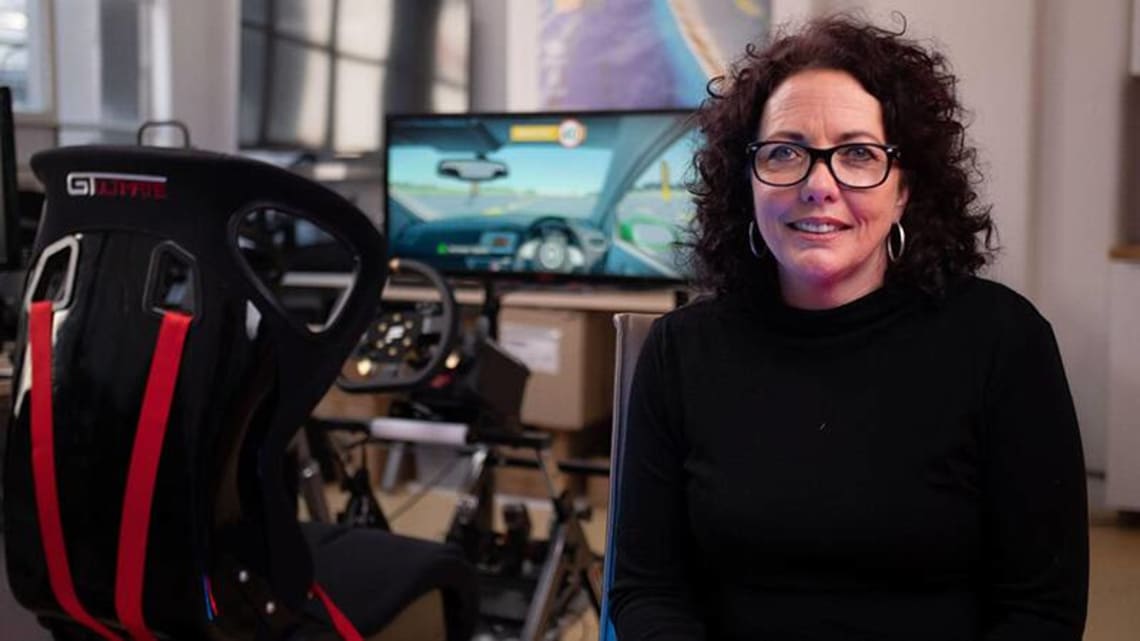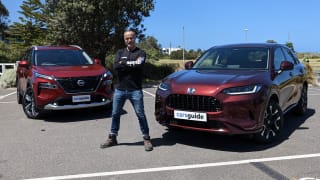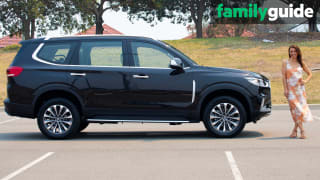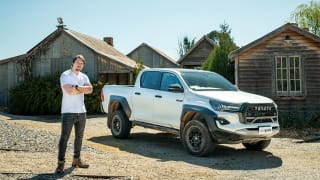There is strange mathematical mismatch when it comes to driving in Australia. See, everybody - and I mean every single person - knows that they're a perfect driver. They give enough space to the people around them, they pay attention to the traffic lights and road signs, and they never, ever, hog the right lane on a freeway unless overtaking.
And yet every time you set off for a drive, you see lots of people who aren't good drivers. They tailgate, they hog the overtaking lane, they drive too slow or too fast, and they don't pay attention.
Do you see the problem? If we're all such good drivers, then where are all these bad drivers coming from?
The truth is that none of us are as good as we think we are. And some of are probably far worse.
Bad driving habits, says Lisa Skaife (the sister of racing legend Mark who spent more than 20 years of her own life involved in motorsport) are often inherited from our teachers. Who are, more often than not, our mums and dads.
"The fact is, 99 per cent of us are taught to drive by our parents, who pass on 20 or 30 years of bad habits, and it's quite clear that incompetent teachers make bad drivers," Skaife insists.
Skaife was so worried about the way we teach teenagers to drive in this country that she helped to create an online driving simulator that could be used in schools to prepare kids for the real world. Launched at the Australian Grand Prix in 2019, MyDriveschool was an instant success and was picked up by 20 schools in its first year.
Modern driver training, of course, also points out the benefits of advanced safety technologies, and what they're doing to keep you in your lane, and prevent rear-end collisions with the car in front. A Next-Gen Ford Ranger, for example, comes as standard with Automatic Emergency Braking with Pedestrian Detection and Lane Keeping Aid - technologies unimaginable to the people who probably taught you to drive.

But modern technology has to marry with traditional skills. Safety technology is there to step in should you need it to. But the best option, of course, is that it never has to.
One automotive company that wants our driving skills to be as sharp as possible is the Ford Australia, which has been running its free Ford Driving Skills for Life courses, for new and younger drivers around the world (including Australia) since 2003.
The course sees professional instructors teach vital driving skills in a safe and controlled environment - which means not on public roads - in current-model Ford vehicles. You can find out more here.
These programs are all about getting everyone on our roads to be better drivers, and so with that in mind, here are Lisa Skaife's Three Top Tips to Make You a Better Driver.
1) Look Further Ahead
"Spatial awareness and hazard detection are two of the most important things that you're taught at a defensive-driving course. Too many people only look at the car in front of them, and they don't leave themselves enough time to react.
"By looking further ahead, you'll see when the vehicle three cars in front you of has started to brake, you'll roll off the throttle, just in case, and you'll have more time to stop if something is about to happen.
"It's so simple, just looking up, but so many people don't do it."
2) Look Behind You
"People need to look in their mirrors, and particularly in their wing mirrors, a lot more, and you can tell, whenever you're on the road, that people just don't do it enough.
"You should be aware of what's around you, in every lane, all the time. You should be constantly looking, so that you know, if you have to emergency brake, for example, that there's a big truck behind you, so that's not going to be an option and you need a different escape route.
"You should always have an escape route, that means thinking about your next move; if something happens, what are you going to do? That's the defensive-driving approach, always being ready, and being aware of what's going on around you."
3) Do Some Driver Training
"No matter how good a driver you think you are, everybody will learn something if they go and have some professional driver training, and everyone should do it, not just once, but every few years.
"It's a chance to hone your skills, but also to find out if you have got any bad habits.
"And, as a bonus, it's always just a great, fun day out."









Comments